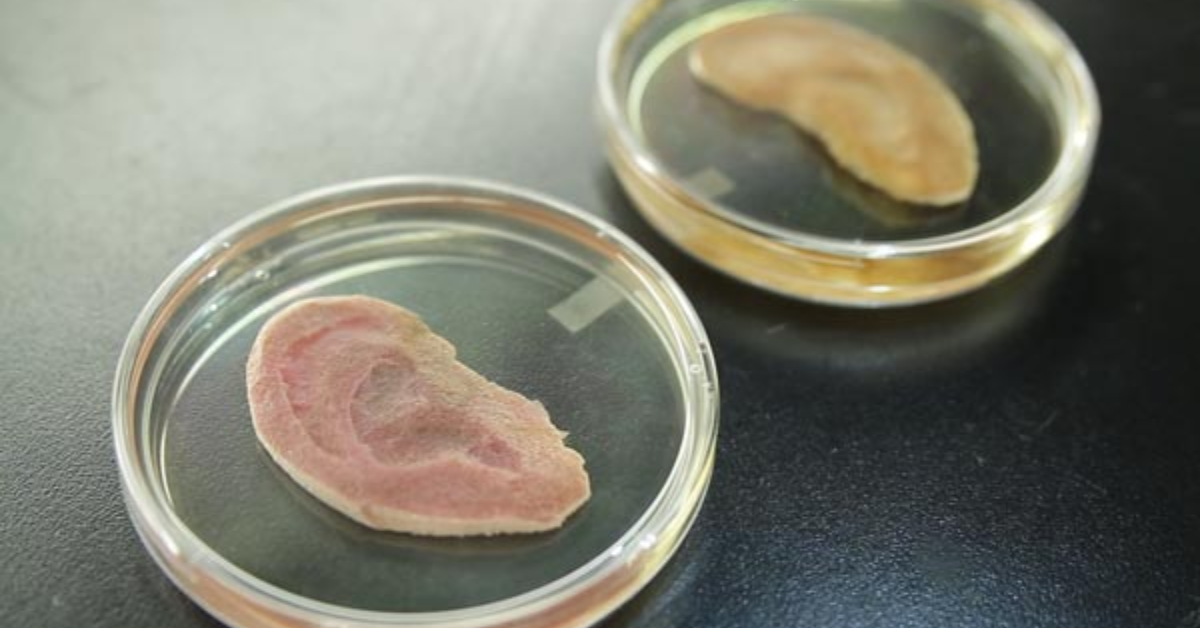
The Li Ka Shing Foundation, one of the world’s largest private non-profit charitable organizations, has granted $1 million to fund the research of Dr. Andrew Pelling, Full Professor at the University of Ottawa’s Department of Physics, into the development of plant-based biomaterials. With this grant, the Pelling Lab for Augmented Biology, located in the STEM Complex at the University of Ottawa, will be able to continue and expand its groundbreaking research into the creation of novel biomaterials. This work first came to global prominence after Pelling premiered the creation of a human ear in a TED talk which has now gained millions of views.
“Our research is now focused on accelerating the development of our plant-based biomaterials to develop treatments for bone and spinal cord injuries which impact millions of patients each year,” explained Professor Pelling. “Our plant-based approach is unconventional in the world of tissue engineering, so it is a very special thing to be recognized by the Li Ka Shing Foundation. This support will allow us to pursue our long term goal of improving human quality of life and well-being on a global scale.”
The Pelling Lab’s work has already opened up new avenues in the field of regenerative medicine. While these new biomaterials have not yet been tested on humans, the clinical translation of this technology is now being driven by Spiderwort Inc. – a company co-founded by Pelling and his former postdoctoral fellow, Dr. Charles M. Cuerrier, who acts as CEO.
“We’re extremely proud of the work we have done with Dr. Pelling. Spiderwort is continuing the journey, which began in the Pelling Lab, to bring these biomaterials to life—and to market—in a way that could impact lives around the globe,” said Dr. Cuerrier.
Spiderwort is a recent alumnus of the Creative Destruction Lab, one of Canada’s premier startup accelerators, where it received transformational support from a global community of entrepreneurs, scientific experts and investors.
“These materials become a living part of the body,” said Pelling. “Angiogenesis, the process by which blood vessels develop, happens spontaneously, and the biocompatibility of the biomaterials is very high. We have been quite literally implanting plants into animals to acts as a scaffold for restoring the structure and vitality of damaged tissues. The positive results have come quicker than we anticipated, and this is both awesome and surprising.”
About the Li Ka Shing Foundation
The Li Ka Shing Foundation was established in 1980 to work on education, medical services and research initiatives. To date, Mr. Li has invested over HK$26 billion across 27 countries and regions, with about 80% of the projects within the Greater China region. In 2006, Mr. Li described his philanthropic effort as akin to having another son in the family. He called for a paradigm shift in our Asian culture of giving, through apportioning more of our wealth and means towards social capital so that we could bring forth great hope and promises for the future.
The University of Ottawa—A crossroads of cultures and ideas
The University of Ottawa is home to over 50,000 students, faculty and staff, who live, work and study in both French and English. Our campus is a crossroads of cultures and ideas, where bold minds come together to inspire game-changing ideas. We are one of Canada’s top 10 research universities—our professors and researchers explore new approaches to today’s challenges. One of a handful of Canadian universities ranked among the top 200 in the world, we attract exceptional thinkers and welcome diverse perspectives from across the globe.
For media inquiries:
Orian Labrèche
Media Relations Officer
[email protected]
613.863.7221
